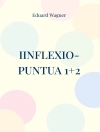The European Union seems incapable of undertaking economic reforms and defining its place in the world. Public apathy towards the EU is also increasing, as citizens feel isolated from the institutions in Brussels and see no way to influence European level decisions.
Taking a diagnosis and cure approach to the EU’s difficulties, Simon Hix tackles these problems with distinct clarity and open-mindedness. What the EU needs, Hix contends, is more open political competition. This would promote policy innovation, foster coalitions across the institutions, provide incentives for the media to cover developments in Brussels, and enable citizens to identify who governs in the EU and to take sides in policy debates. The EU is ready for this new challenge. The institutional reforms since the 1980s have transformed the EU into a more competitive polity, and political battles and coalitions are developing inside and between the European Parliament, the Council, and the Commission.
This emerging politics should be more central to the Brussels policy process, with clearer coalitions and identifiable winners and losers, at least in the short term. The risks are low because the EU has multiple checks-and-balances. Yet, the potential benefits are high, as more open politics could enable the EU to overcome policy gridlock, rebuild public support, and reduce the democratic deficit. This indispensable book will be of great interest to students of the European politics, scholars, policy makers and anyone concerned with the future of the European Union.
Daftar Isi
List of figures, tables and boxes vi
Preface ix
List of abbreviations xi
1. Introduction 1
2. Why the European Union is more necessary than ever 8
PART I: THE DIAGNOSIS 29
3. Policy gridlock 31
4. Lack of popular legitimacy 50
5. A democratic deficit 67
PART II: THE CURE 87
6. The case for ‘limited democratic politics’ in the EU 89
7. How the EU is ready for limited democratic politics 110
8. Encouraging democratic politics in the EU 137
9. A scenario: the 2009 European Commission President contest 166
10. Conclusion and response to potential critiques 179
Notes 193
References 200
Index 208
Tentang Penulis
Simon Hix is a British political scientist and Harold Laski Professor of Political Science at the London School of Economics and Political Science.












